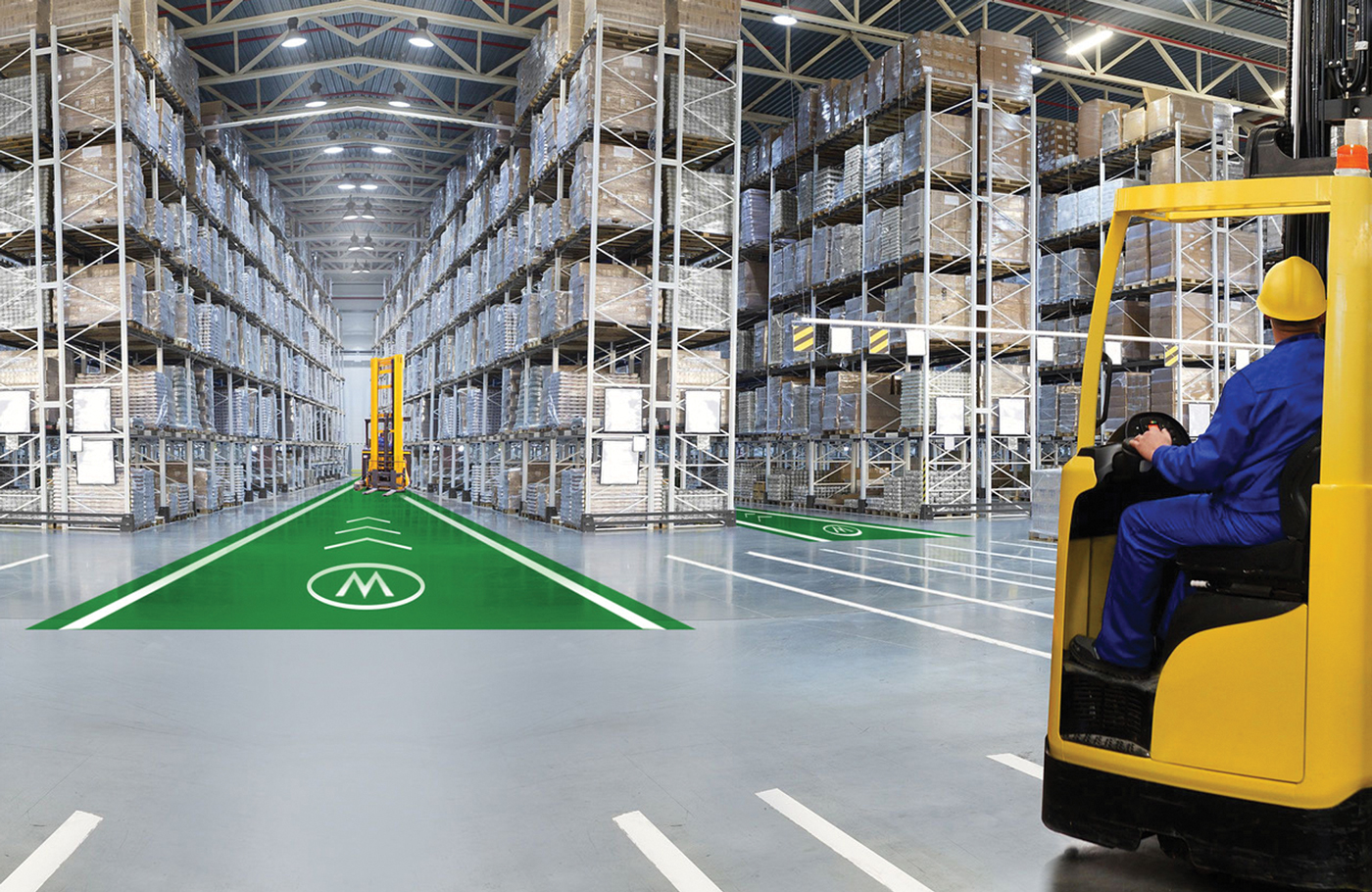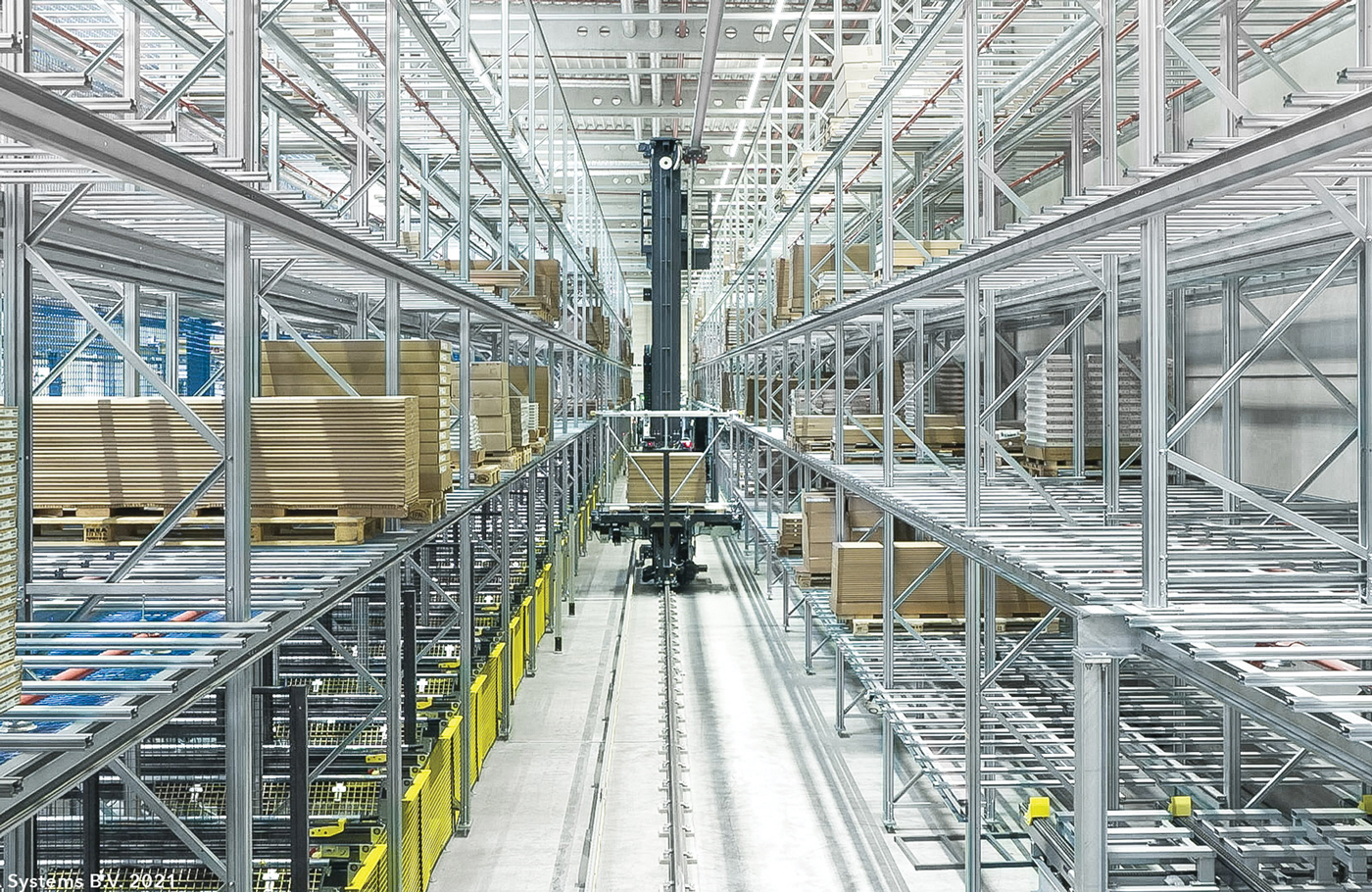IFOY Award 2022: 12 companies reach finals!
IFOY Award 2022: 12 companies reach finals!
The finalists for the International Intralogistics and Forklift Truck of the Year (IFOY) Award 2022 have been revealed.
A total of 14 products and solutions from 12 manufacturers have made it into the IFOY finals. “In addition to forklifts and warehouse technology, automated, integrated solutions, software, and autonomous mobile robots (AMR) for high-performance warehouses play a central role,” says Anita Würmser, chairwoman of the IFOY jury, explaining that the nominees for the final reflect the exciting future journey of intralogistics.
Building up to the final in March, let’s take a look at some of the innovative devices and systems that will be on show.
Cargotec Engineering from Ireland will showcase the latest addition to its all-electric truck-mounted forklift series: the Moffett E5 25.4 NX. Available with four-way steering (multidirectional), the truck is part of the second generation of the world’s first all-electric truck-mounted forklift and offers the huge advantage of emissions-free customer deliveries.
Hamburg-based Intralogistics supplier Jungheinrich has secured two final places, firstly for the warehouse technology ERD 220i electric high-lift truck. Due to the lithium-ion battery concept, the dimensions of the double-deck stacker are ultra-compact for simultaneously transporting two pallets. In addition to smart features that make everyday work much easier, the fixed platform offers high side protection from three sides and plenty of space for the driver.
The jury also gave Jungheinrich’s driverless EKS 215a transport vehicle the green light. With a lifting height of up to six metres, this unit is the company’s first AGV developed purely for automated use in logistics and production. The integrated safety concept enables smooth use in inventory environments where there is also manual traffic, while its specially-developed 24-volt energy concept offers an automatic charging function.


The nominated AMR Solution from US manufacturer Locus Robotics is a platform that uses proprietary optimisation algorithms and real-time operational performance data to coordinate workers and AMRs. According to the manufacturer, customers achieve a return on investment (ROI) within six to eight months and a two to threefold increase in productivity through the Robots-as-a-Service (RaaS) model.
The Unterhaching-based startup Magment has developed a dynamic wireless charging infrastructure for the electrification of industrial floors. Based on patented magnetisable concrete combined with special winding and casting technologies, the system’s robust inductive charging plates enable loss-free charging for intralogistics vehicles while driving. This reduces or even eliminates charging pauses for industrial trucks.
NAiSE, a company from Stuttgart that develops manufacturer-independent traffic and order management software, has been nominated in the Startup of the Year category. The patented localisation network (NAiSE RTLS) includes the entire mixed operation – all persons and vehicles in the warehouse – in its traffic control and analysis, thus ensuring a more efficient and safer material flow.
A third nominated startup, Munich-based NoyesStorage, has launched Noyes Technologies, the first robotics-powered, ultra-dense, automated, and highly flexible nano-logistics system for urban logistics. The goal is to solve complex problems sustainably through simple approaches. To this end, the technology is reduced to only what is necessary and focuses on a high degree of standardisation and modularisation. Thanks to its modular structure, the system can be applied to areas as small as 10 m2.
Another Munich-based company, robominds, brings to the final the AI-based robobrain.NEUROS (Neural Robotic Operating System) for intelligent robotics, which is also a platform for the next generation of automation. The robobrain.NEUROS system takes the already commonplace and highly available flexible, expandable operating system of smartphones and transforms it into intelligent robotics. The platform offers a variety of optional skill extensions, including vision skills such as item picking and bin picking; control skills for easy programming of robots or fleet management of several robot cells; and driver skills for various robots, grippers, and cameras.
Sensor specialist SICK has developed the Deep Learning-based PACS (PAllet Classification System). This pallet identification system uses a modular hardware and software kit to automate the process by which employees in goods receiving determine whether or not incoming pallets belong to a pallet pool and have a deposit.
SSI Schäfer’s IKEA Project Flat Pack Picking offers an automated and turnkey system solution for the efficient and volume-optimised palletising of large items typical for the furniture trade. This order-picking module with gantry robots enables the efficient handling of a heterogeneous range of articles and is characterised by high scalability.
Hamburg-based STILL has also been nominated for its automated warehouse extension at the Hase Safety Workwear facility, which was expanded to a total of 10 000 pallet spaces. At the same time, existing STILL industrial trucks were replaced with automated and more powerful trucks with telescopic forks. Optimised driving courses further contributed to increased performance.
STILL also successfully applied for the Special of the Year category with its Descend Speed Regulation (DSR), a three-stage assistance system for trailers and tuggers that makes it easier for the driver to descend safely, especially with heavy trailer loads. The system manually or automatically regulates vehicle speed to protect against dangerous situations.
Part of the Belgian stow Group, stow robotics has made it to the finals with e.scala, a standardised, robot-based goods-to-person storage and picking system for small and medium-sized applications. Using a robot that moves three-dimensionally in the cube via rails and a patented ramp system, e.scala replaces all the classic components of an automated storage system. This allows for a realisation time of just three months, while further advantages include a low investment and low running costs.
SYNAOS has also been nominated for its IMS vehicle localisation solution, which uses a sensor kit with camera to display the position of manually-controlled industrial trucks. The system can be easily installed and scaled, and incorporates state-of-the-art Visual Odometry from robotics for accurate and robust tracking, rather than standard UWB or LiDAR.
The 26-member international jury comprises trade journalists from leading logistics media in 20 countries, with South Africa represented by FOCUS editorial director, Charleen Clarke. The jury will test or inspect the nominees on-site during and after the IFOY Test Days from March 18 to 23 at Messe Dortmund, using a standardised three-stage IFOY audit, while scientists assess the nominees’ innovative value during the IFOY innovation check.
The innovation check is carried out by specialists from the Fraunhofer Institute for Material Flow and Logistics (IML); the Chair of Technical Logistics at the University of Dresden; and the Chair of Materials Handling, Material Flow, and Logistics at the Technical University of Munich. For the first time, an expert from the Fraunhofer Institute for Manufacturing, Engineering, and Automation (IPA) will also be part of the research team.
Importantly, finalists are not compared with each other in their respective categories, but rather with their market competitors. Jurors will evaluate innovation value, technology, ergonomics and handling, safety, design, customer benefits, economic efficiency, and sustainability, amongst other factors, with the trophies to be awarded on June 30.
Published by
Focus on Transport
focusmagsa








